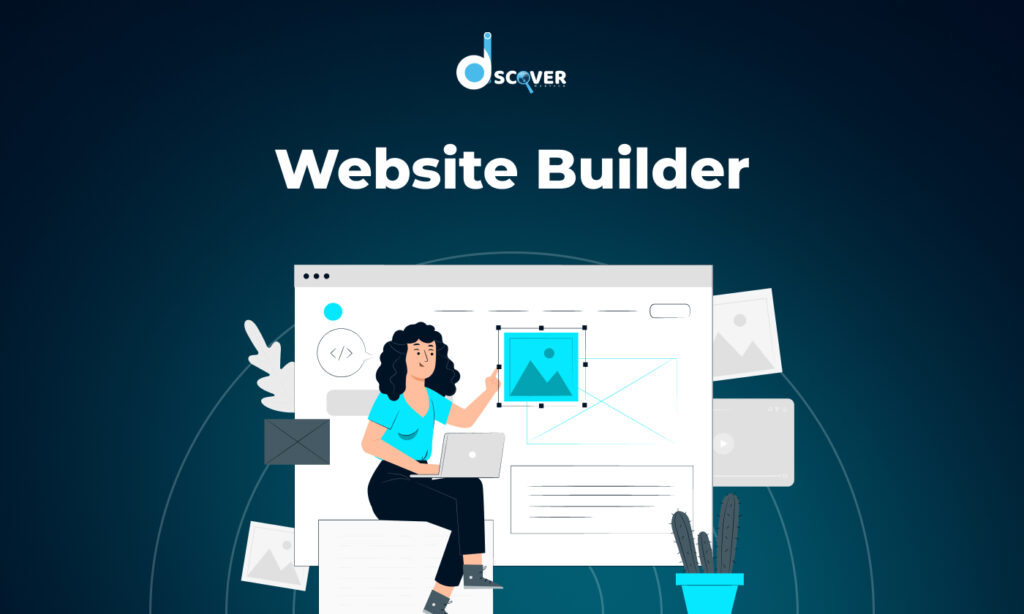
In today’s digital age, having an online presence is essential for any business. The key to building that presence is choosing the right website builder. In 2025, many options are available, each offering unique features, pricing, and customization options. With so many choices, how do you know which one is right for your business? This guide will help you assess your needs and choose the best web design platform for your business.
Assessing Your Business Needs
Before jumping into selecting a website builder, it’s crucial to first assess your business’s needs. Consider the type of website you want to create and the functionalities you need. If you’re starting a blog, you may need a simple design with easy-to-use features. For an e-commerce site, on the other hand, you’ll need a web design platform that offers integrated shopping cart features, secure payment options, and inventory management tools. Understanding your requirements will help you narrow down the best platform for your business goals.
Types of Website Builders
There are two primary types of web design platforms: drag-and-drop builders and customizable platforms. Drag-and-drop builders are ideal for beginners and those who want an easy-to-use platform without technical expertise. These builders offer pre-designed templates and a simple interface for adding content. Customizable platforms, like WordPress, require more technical knowledge but offer greater flexibility and control over the design and functionality of your site. Choosing between these two types depends on how much time and expertise you have. If you require more advanced customizations, you may want to hire an HTML developer to help with coding and customization, as this will give you more control over your site’s design.
- Drag-and-drop builders are easy to use with no coding required.
- Customizable platforms offer more control but may require technical skills.
- Evaluate your technical expertise and business needs before deciding.
- If you need advanced customization, consider hiring an HTML developer.
Key Features to Look for in a Website Builder
When choosing the right website builder for your business, there are certain features you should prioritize. One of the most important aspects is the user-friendly design interface. The builder should allow you to easily create and update content without requiring coding skills. Additionally, mobile optimization is a must. Your website should look great on all devices, as mobile traffic is continuously rising. Another essential feature is SEO tools. A good web design platform should provide built-in SEO features to help your website rank higher in search engine results, making it easier for potential customers to find you online. If you’re looking to further enhance your website’s SEO, working with an SEO expert can help optimize your content and improve your site’s visibility.
Comparing Popular Website Builders
There are many website builders available in the market today, each offering a range of features, templates, and pricing plans. Some of the most popular options include Squarespace, Wix, WordPress, and Shopify. Squarespace is known for its visually stunning templates and ease of use, making it ideal for creatives. Wix is another drag-and-drop builder with more flexibility in design customization. WordPress is highly customizable and offers a wide range of plugins but may require some technical knowledge. Shopify, on the other hand, is a great option for businesses focused on e-commerce.
- Squarespace: Great for creatives with its elegant templates and user-friendly interface.
- Wix: Flexible design and customizable features for small businesses.
- WordPress: Highly customizable but requires technical skills.
- Shopify: Best for e-commerce with built-in payment processing and product management.
Considering Scalability and Future Growth
When choosing a web design platform, it’s important to think about the future growth of your business. As your business expands, your website will need to evolve. Make sure the platform you choose can handle increased traffic, more complex functionalities, and future updates. Some website builders offer scalability options, such as adding more pages, upgrading storage, or integrating with other tools as your business grows. This will ensure that you don’t have to change platforms as your business expands, saving you time and money in the long run.
Technical Support and Customer Service
Even with an easy-to-use website builder, there may be times when you need help. Whether it’s troubleshooting an issue or customizing a feature, having reliable customer support can make a huge difference. Many web design platforms offer 24/7 customer support through chat, email, or phone. Additionally, platforms like Wix and Squarespace have community forums and extensive knowledge bases where you can find solutions to common issues. When choosing a platform, consider the level of support you might need and the type of assistance available.
- Look for 24/7 customer support through multiple channels.
- Check for community forums and helpful knowledge bases.
- Consider the quality of support and resources offered by the platform.
Cost and Pricing Models
Cost is an essential factor to consider when choosing a web design platform. While many platforms offer free trials, there will be ongoing costs to maintain your website. Pricing models vary across platforms, with some offering free plans with limited features, while others require monthly or annual subscriptions. Be sure to evaluate what’s included in the price, such as hosting, domain registration, and premium templates. While a lower price might be tempting, it’s essential to ensure that the platform provides all the features your business needs.
Making the Final Decision
After evaluating your options, it’s time to make the final decision. Choose a web design platform based on your business needs, budget, and long-term goals. Consider factors such as ease of use, scalability, available features, and customer support. Before committing, take advantage of free trials or demos to test the platform’s functionality and see if it aligns with your expectations. It’s always a good idea to make an informed decision to ensure the platform supports your business’s growth and success.
- Test the platform with a free trial or demo before committing.
- Choose a builder that fits your needs and budget.
- Ensure the platform supports future business growth.
Final Thoughts
Choosing the right website builder in 2025 is an important decision that can significantly impact your business’s online presence. By evaluating your business needs, considering key features, and comparing popular platforms, you can make an informed choice. If you require advanced functionality or customizations, it may be beneficial to work with an expert website builder who can guide you through the process and ensure your site is optimized for performance and design. Remember to look for scalability, reliable support, and a pricing model that fits your budget. With the right platform, you can create a website that showcases your business effectively, attracts customers, and helps you grow in the digital world.


